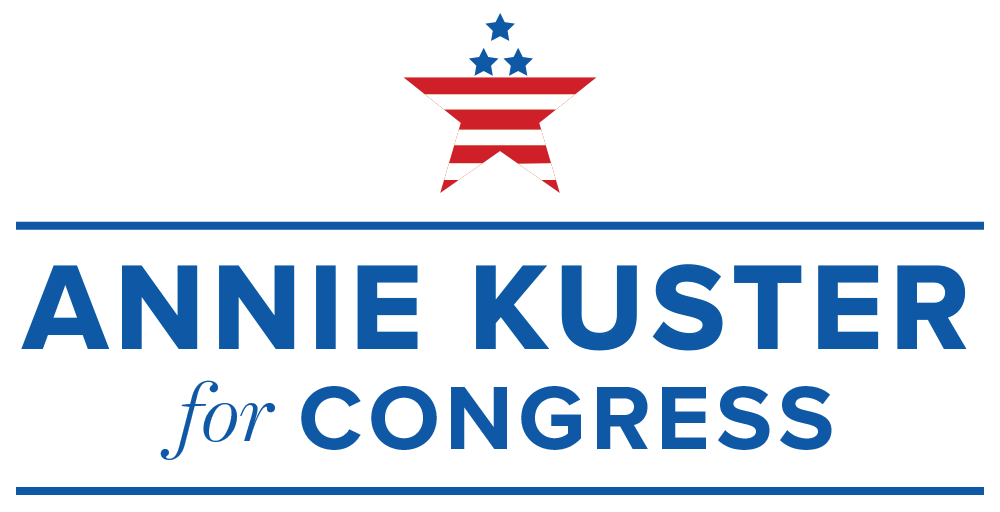By Valley News Editorial Board | October 29, 2022
Democratic-affiliated groups spent heavily during this year’s primaries to aid far-right Republican candidates whom they regarded as easier to defeat in November’s general election. One beneficiary was Robert Burns, who won the Republican nomination in New Hampshire’s 2nd Congressional District, which includes the Upper Valley. To say that Burns, 44, is a man of unconventional views is a gross understatement. Indeed, he falls somewhere on the spectrum between crackpot and visionary. And to the extent that he is visionary, the vision is largely incoherent.
His opponent is U.S. Rep. Annie Kuster, and the contrast between the two could not be sharper. Kuster, 66, a five-term Democratic incumbent, is a sober-minded, hardworking foot soldier in the legislative trenches who has proven to be a reliable vote for practical and progressive measures that stand to improve the lives of her constituents.
She has an admirable track record of bipartisan accomplishment in, among other things, improving veterans’ health care options, and she has been a leader in congressional efforts to address opioid addiction.
Based on our meeting with him, Burns has high regard for — among many other things and in no particular order — the intelligence of pigs; Elon Musk; the ease of purchasing AR-15 rifles; Elon Musk; a new generation of nuclear power; the American Mustang; Puerto Rico’s claim to statehood; Elon Musk; the environmental records of Teddy Roosevelt and Richard Nixon; and “a lot of great things” Donald Trump did as president. Did we mention Elon Musk? Not as many times as Burns did.
The things Burns doesn’t like include abortion, hydropower, wind power, drug treatment programs that allow addicts to blame other people for their troubles, and perhaps the kind of history that is taught in public schools, although his extended riff on the subject of “real history” was sufficiently rambling and opaque as to make us wonder.
If Burns’ views are all over the lot, Kuster’s strength is connecting the dots. One example will perhaps suffice. Both candidates were asked during their separate meetings with Valley News editors and reporters why they thought the birth rate in New Hampshire, and indeed the whole nation, was so low.
Burns answered that society has become so obsessed with worldly accomplishment and material possessions that children often do not fit into that picture. This is not inherently a preposterous idea, but when asked what might be done to address the issue of aging demographics, he replied that only a change in culture would do the trick. “I think it’s more of a societal thing to change, quite frankly,” Burns said. “I think Elon Musk and the Kardashians are probably doing a great job at telling younger people that children don’t get in the way of your career.”
Kuster, on the other hand, had a succinct answer for why young people are not having more children: “They can’t afford it.” Noting that the country’s aging demographics are implicated in all sorts of other problems, including the workforce shortages plaguing the economy, Kuster homed in on the high cost of child care, the burdens of student debt, the lack of affordable housing and a benighted immigration policy as factors that could and should be addressed legislatively at the federal level.
Burns’ views are not merely eccentric; some are also dangerous. He would certainly be a vote in Congress for a nationwide ban on abortion, and bizarrely enough, once suggested the establishment of life-or-death panels that would decide whether an abortion was necessary to save the life of a woman experiencing complications in pregnancy. Kuster, having been an adoption lawyer before being elected to Congress, is a firm supporter of abortion rights. “I represented women with unplanned pregnancies from age 14 to 40,” she once said, “and they ranged from living in their car to living in the nicest neighborhoods in town. Unplanned pregnancy is an equal-opportunity affliction.” Kuster believes that women facing these situations should have 'a full range of choices.'
More broadly, we see nothing to suggest that Burns would be anything other than an enthusiastic enabler of the broader agenda of subverting democracy that would be pursued by radical right-wing Republicans if they win a majority in Congress. Certainly, Trump’s recent full-throated endorsement of Burns indicates as much.
We also sense that Burns considers his campaign something of a lark that affords him the opportunity to tweak the pretensions of people who take themselves too seriously. This is the same cavalier sensibility that Trump displayed early in his first presidential campaign, before he came to fully appreciate and capitalize on its power to deceive.
Kuster, on the other hand, regards this is as the most important election of her lifetime: “The future of our planet is on the line, the future of our democracy is on the line.” Indeed they are, and we urge 2nd Congressional District voters to vote for the future that Annie Kuster has in mind.
Annie Kuster is a sober-minded, hard-working foot soldier in the legislative trenches who has proven to be a reliable vote for practical and progressive measures that stand to improve the lives of her constituents.


